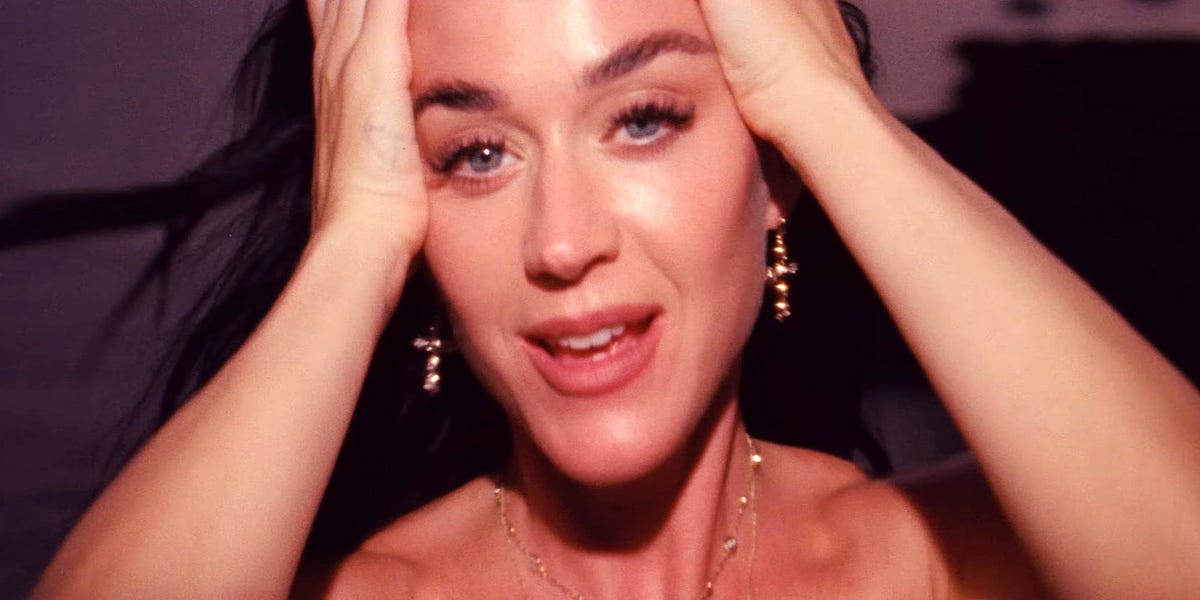Katy Perry has been desperately trying to drum up excitement for her new single, "Lifetimes", spending the past week urging fans to pre-save the track. This proactive approach comes after the disappointing reception of her previous release, "Woman's World", leaving many wondering if she can truly stage a successful comeback.
According to Eric Schiffer, a PR expert and chairman of Reputation Management Consultants, Perry's recent musical offerings have created a "career crisis" for the pop star. The negative press surrounding her new music has hampered her efforts to reconnect with millennial fans and capture the attention of a new generation of Gen Z listeners. "It can be a bloodbath to a brand like hers," Schiffer warned.
For Perry, "Lifetimes" represents a chance for redemption, but only if the track can surpass the lukewarm response to its predecessor. While the song is arguably more palatable than "Woman's World", many critics argue it still falls short of expectations.
While "Woman's World" dominated social media discourse during its release week, "Lifetimes" has failed to ignite any significant interest. The song itself, a collaboration with eight co-writers, is widely considered unremarkable and repetitive. Perry's declaration that "I'm gonna love you 'til the end and then repeat it" is a literal statement, with the song featuring essentially the same five lines repeated ad nauseam throughout its three-minute-and-twelve-second runtime.
While repetitive lyrics are common in club music, a genre Perry believes "Lifetimes" belongs to, many listeners find this claim laughable, particularly during a summer dominated by "Brat" anthems. The song's placement in a club setting feels jarring and out of place, more suited to a "Love Island" dance party than a high-energy Ibiza club scene.
In reality, authentic club music is constantly evolving, experimental, textured, and often surprising. In contrast, "Lifetimes" feels predictable and formulaic, offering at best a nostalgic reminder of Perry's 2010s heyday.
Schiffer echoed this sentiment, describing "Lifetimes" as "highly outdated and desperate", and stating that Perry is "going to her playbook and her playbook is done."
It's clear that Perry is determined to reclaim her place at the top of the pop music hierarchy, but the reception to her first two singles, marked by negativity and apathy respectively, reflects the current reality of her standing in pop culture.
Further compounding these issues is the perceived hypocrisy of Perry's collaboration with Dr. Luke, who co-produced and co-wrote both "Woman's World" and "Lifetimes." Dr. Luke, a prominent figure in Perry's early career, became a music industry pariah in 2014 when Kesha sued him for sexual, physical, and emotional abuse, accusations he has vehemently denied. The pair reached an undisclosed settlement last year.
For many fans, Dr. Luke's return to Perry's creative sphere has negated any excitement they may have had for new music, with many questioning the authenticity of Perry's message of female empowerment while working with a producer facing such serious allegations.
Schiffer believes that Perry needs to evolve her sound, reinvent herself, and engage with new, younger audiences instead of relying solely on nostalgia to appeal to her millennial base. He recommends a candid interview to address her choices, particularly the decision to work with Dr. Luke, emphasizing transparency and authenticity as key to winning over a Gen Z audience.
"There's work she's got to do, and it requires a greater level of emotional intelligence than has been applied to date," he concluded.
Despite her current predicament, Perry's career is not entirely doomed. Artists like Ye (formerly known as Kanye West) and Morgan Wallen have topped the Billboard charts this year, despite accusations of antisemitism and racism respectively. Ultimately, Schiffer believes the success of Perry's comeback hinges on the quality of her music.
"What matters in the rehab of a brand is, are you getting traction with your product?" Schiffer explained. "Her product is music and the first single struggled. The second one seems to have more vigor, but it's early. We'll have to see what occurs as she drops the full album."
"It's achievable if the quality is there," he concluded. "Ultimately, that's the driver."
Article
Entertainment

Katy Perry's Pop Comeback: Can "Lifetimes" Save Her From a Career Crisis?

